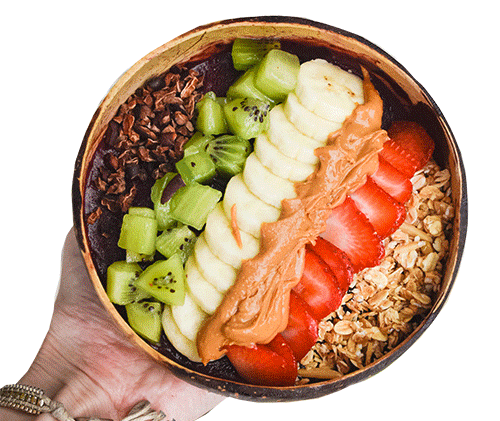- ThriveWire
- Posts
- Ancient Wisdom Meets AI: The New Science of Eating for a Longer Life
Ancient Wisdom Meets AI: The New Science of Eating for a Longer Life
Learn how cutting-edge technology is validating (and improving) centuries-old dietary wisdom
Welcome to ThriveWire!
Hi there, and welcome back to ThriveWire, your weekly guide to unlocking the secrets of health and longevity.
I've been diving deep into the fascinating intersection of traditional wisdom and cutting-edge technology lately.
While our ancestors understood the profound impact of diet on longevity – just look at the time-tested Mediterranean and Okinawan diets – we're now entering an era where artificial intelligence can help us understand exactly why these approaches work and how to optimize them for individual needs.
Whether you're interested in optimizing your diet for a longer life or curious about how artificial intelligence might help us crack the aging code, I've gathered the latest research and practical insights to help you make informed decisions about your health journey.
Let's explore the fascinating future of longevity!
First time reading? Join 10000+ readers for weekly tips to live longer and stay healthier. Sign up here.
What’s Happening This Week? 🤔
Are Eggs Good for You? 🥚 The debate continues as this article dives into the science behind eggs and their impact on health. Discover how eggs influence heart health, cholesterol levels, and why moderation might be the key to including them in your diet.
OpenAI's AI Model for Longevity Science 🤖 Discover how OpenAI's latest innovation is poised to revolutionize longevity research by uncovering new insights into aging, accelerating drug discovery, and personalizing health interventions.
Cyclarity Begins Human Trials for Atherosclerosis Treatment ❤️ Exciting news in longevity science: Cyclarity is testing a groundbreaking therapy designed to reverse atherosclerosis, a major driver of heart disease. Learn how this innovative approach targets harmful arterial plaques to improve cardiovascular health.
AI Revolutionizes Cancer Prognosis 🤖 Stanford’s groundbreaking AI model is setting new standards in predicting cancer outcomes, offering unmatched accuracy and personalized insights for patients and doctors alike.
Prevention: The True Key to Longevity? 🛡️ Discover why experts say focusing on prevention is the most effective way to extend healthspan and lifespan. Explore practical steps to safeguard your future.
Spermidine: A Potential Key to Longevity? 🧬 Renowned scientist David Sinclair highlights the promising role of spermidine in extending lifespan and improving health markers.
🥗 The Longevity Diet: Separating Science from Hype 🥗

The quest for the ultimate "longevity diet" has captivated researchers and health enthusiasts alike. From the sun-soaked shores of the Mediterranean to Japan's Okinawa region, certain dietary patterns are linked to exceptional health and lifespan. But what’s science-backed, and what’s just hype?
What Does the Research Say?
Mediterranean Diet: A Proven Powerhouse
The Mediterranean diet is a consistent frontrunner in longevity research.
Research Highlight: A comprehensive meta-analysis published in Advances in Nutrition reviewed 29 prospective cohort studies with over 1.6 million participants. The findings revealed a 10% lower risk of all-cause mortality for every 2-point increase in adherence to the Mediterranean diet.
Key observations include:
Stronger Benefits in Mediterranean Regions: Populations in Mediterranean areas experienced an even greater reduction in mortality risk (18%), likely due to higher adherence and traditional food preparation methods.
Linear Dose-Response Relationship: Mortality risk decreased consistently with greater adherence to the Mediterranean diet.
Why It Works: This diet combats oxidative stress and inflammation with its high polyphenol content from:
Olive oil
Fresh vegetables
Legumes
Fish
Minimal processed foods and red meat
Caloric Restriction: The Balanced Approach
Severe caloric restriction extends lifespan in lab animals, but for humans, moderation is key.
Key Study: The CALERIE trial showed a 12% calorie reduction improved aging markers without the risks of extreme restriction.
Time-Restricted Eating: Timing Matters
When you eat can be as important as what you eat.
Findings: Research from the Salk Institute revealed:
An 8–10-hour eating window enhances insulin sensitivity and reduces inflammation.
Eating aligned with circadian rhythms promotes cellular repair.
Occasional flexibility doesn’t negate benefits.
Plant-Based Paradigms: Quality Over Quantity
Plant-based diets are celebrated for longevity, but not all plant foods are equal.
Key Insights:
A 2023 Adventist Health Study found plant-based eaters had a 12–15% lower risk of premature death.
Whole foods like vegetables, legumes, and nuts showed the greatest benefits.
Processed vegan options didn’t deliver the same advantages.
The Protein Paradox: Balancing Needs
Protein intake plays a complex role in longevity, shifting with age.
Recommendations:
Middle age: Lower protein intake (0.7–0.8g/kg) may benefit aging markers.
After 65: Higher protein intake (1.0–1.2g/kg) prevents muscle loss (sarcopenia).
Best sources: Plant proteins and fish outperform red meat for longevity.
Practical Implementation
Base Your Diet on Proven Principles:
Fill your plate with whole foods: vegetables, fruits, legumes, and nuts.
Include fatty fish 2–3 times a week for omega-3s.
Use olive oil as your primary fat source.
Minimize processed foods, added sugars, and red meat.
Optimize Your Meal Timing:
Start with a 12-hour overnight fasting window; extend gradually if desired.
Align larger meals with your most active hours.
Consider front-loading calories earlier in the day.
The Bottom Line
The best "longevity diet" is a sustainable, flexible framework built on whole foods, balanced portions, and natural eating patterns.
Key Takeaways:
Consistency matters more than perfection.
Choose nutrient-dense foods and tailor your diet to your lifestyle.
Remember, the best diet is the one you can enjoy for years, not weeks.
Start small: Add one new habit to your routine this week. Over time, these small steps add up to major transformations.
🤖 AI in Longevity Research: The Future of Aging Science 🧬

Artificial intelligence (AI) is transforming how we approach healthy aging. From developing new medications faster to providing personalized health recommendations, AI is making "sci-fi" concepts a reality. Here's what this means for you and your health:
Making Better Medicines, Faster
Remember when developing a new medication took 10-15 years? AI is changing that dramatically.
Real-World Impact:
A company called Insilico Medicine used AI to develop a potential anti-aging drug in just 18 months – something that normally takes 5-7 years
This means new treatments for age-related conditions could reach patients much sooner
The cost savings could make treatments more affordable for everyone
Practical Benefits:
More treatment options for age-related conditions
Faster development of personalized medications
Better understanding of how different medications interact with each other
Your Personal Health Assistant
AI is getting better at predicting health issues before they become serious problems.
What This Means For You:
Smart watches and health apps can now detect irregular heart rhythms and sleep patterns
Voice analysis apps can spot early signs of conditions like Parkinson's disease
Facial analysis can identify signs of aging that might indicate underlying health issues
Real-Life Example: Sarah, a 45-year-old ThriveWire reader, discovered her unusual sleep patterns through her smart watch's AI analysis. This led to an early diagnosis of sleep apnea, allowing her to start treatment before it affected her heart health.
Personalized Health Plans
Imagine having a health plan as unique as your fingerprint. AI is making this possible.
How It Works:
AI analyzes your:
Genetic information
Blood test results
Lifestyle habits
Exercise patterns
Diet preferences
Then creates personalized recommendations for:
The best times to eat and exercise
Which foods work best for your body
How much sleep you really need
Which supplements might benefit you most
Real-World Applications:
Some doctors are already using AI to create custom nutrition plans based on patients' blood work
Fitness apps now provide AI-powered workout recommendations that adapt to your progress
Digital health platforms can predict your risk factors and suggest preventive measures
What's Coming Next?
Exciting developments on the horizon:
Near Future (1-2 years):
More accurate health predictions from wearable devices
Better personalized diet recommendations
Earlier detection of age-related conditions
Longer Term (3-5 years):
AI-designed supplements tailored to your genetics
Virtual health assistants that can spot health changes through your smartphone camera
More precise anti-aging treatments based on your biological age
Quick Actions You Can Take Today:
Start tracking your health basics with a smartphone or smartwatch
Ask your healthcare provider about AI-powered health monitoring options
Consider genetic testing to get more personalized health insights
The Bottom Line
While AI won't replace doctors or traditional medical care, it's becoming a powerful tool for helping us live longer, healthier lives. The key is to embrace these technologies while maintaining a balanced, common-sense approach to health.
Remember: The best technology is the one that helps you make better health decisions day by day. Start small, stay consistent, and let AI be your helper – not your healthcare driver.
Thanks for reading this week’s ThriveWire! 💡
Whether you're planning to optimize your diet with time-tested wisdom or excited about AI's potential to transform aging research, I hope today's newsletter has given you both practical steps and inspiring possibilities for your health journey.
I'd love to hear your thoughts on this week’s newsletter. Are you already practicing any of the dietary principles we discussed? What do you think about AI's role in longevity research? Drop me a line – your insights and questions help shape future editions of ThriveWire.
“Success is the sum of small efforts, repeated day in and day out.” – Robert Collier
Stay healthy,
Andrew Courtney
Founder, ThriveWire
P.S. Know someone who'd enjoy these weekly insights? Share ThriveWire with them – because good health is better when shared!
How did we do with todays Newsletter?Your feedback helps us make ThriveWire better. |
Disclaimer: The information provided in ThriveWire is for educational purposes only and is not a substitute for professional medical advice, diagnosis, or treatment. Always consult your healthcare provider before making changes to your diet, exercise routine, or health regimen.